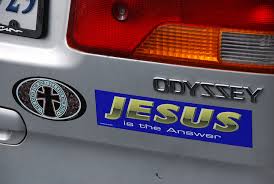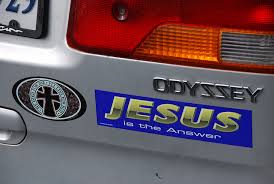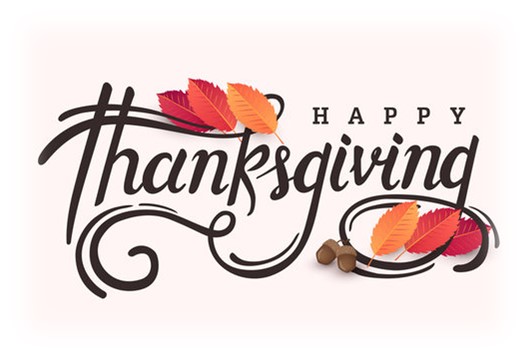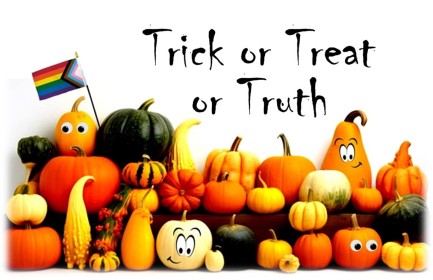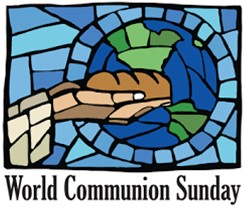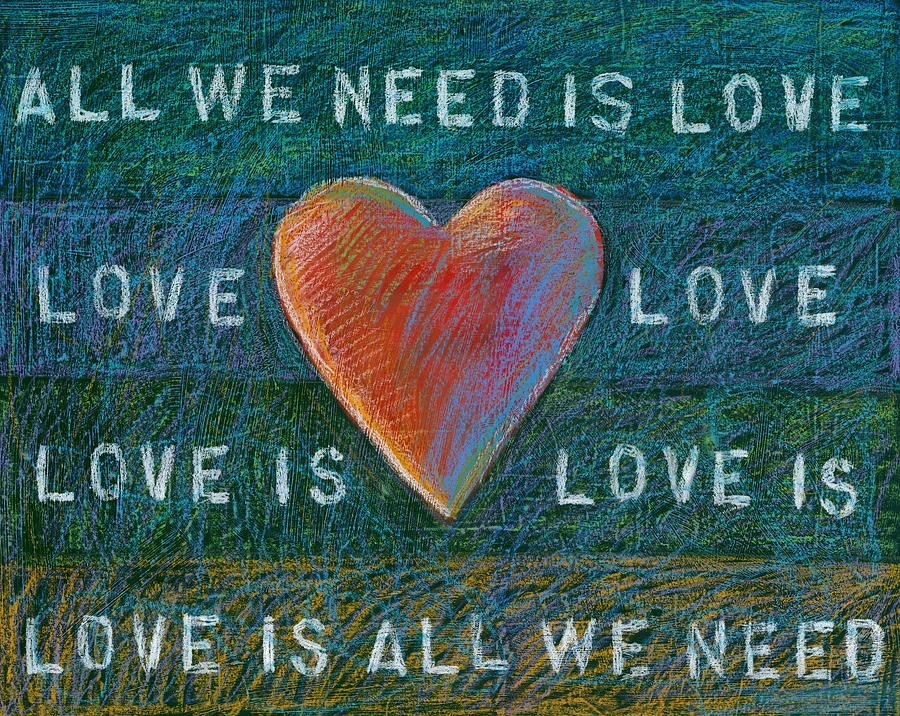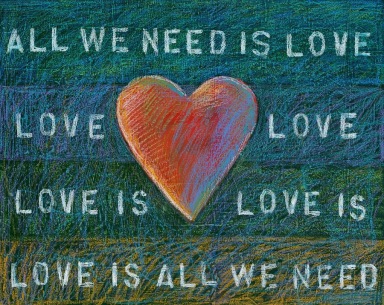On this Sunday after Thanksgiving, as a Christian pastor, I am most thankful for Jesus, for I truly believe with all my heart, for me personally, Jesus is the answer.
Now, I know how cliché, cheesy and bumper-stickery that sounds, but I can’t help it. When it comes to questions about theology, about all I got for an answer is Jesus.
And you should know that I dislike few things more than bumper-sticker theology! It tears my nerves up when people try to reduce something as miraculously mysterious as faith in the Holy-Source-of-all-that-is into a few pithy words to slap on the back of a vehicle.
“Jesus is my co-pilot.” If Jesus is merely your co-pilot, I suggest you switch seats. Because I believe it’s Jesus who needs to be your pilot, the one who makes the decisions, charts the course, and steers the ship, leading you on the way of love that has the power heal sick religion, restore a distorted morality and make whole a fragmented planet.
“Honk if you love Jesus.” Please don’t do that. If you truly love Jesus, if you are following the way of love that Jesus embodied and taught his disciples, please, never toot your own horn. If you really love Jesus, feed the hungry, clothe the naked, shelter the homeless, love the outcast, forgive the sinner, care for the dying, and be a friend to the lonely.
“Got Jesus?” No, I don’t. Because I don’t believe Jesus can be “got.” I believe the way of love Jesus modeled wants to get us. Jesus wants to get us to deny ourselves, pick up a cross and follow him. We don’t get Jesus to meet our needs. Jesus wants to get us to meet the needs of the world. We don’t get Jesus as some sort of ticket to heaven. Jesus wants to get us to bring heaven to earth.
“Jesus is the reason for the season.” If we call ourselves a Christians, shouldn’t Jesus be the reason for every season, be the Lord over, reign over, every season, every month, and every day. Shouldn’t the way of love of give meaning and direction to our lives all year long?
“Keep Christ in Christmas.” Why don’t we first try to keep Christ in “Christian?” For I believe the reason so many people are turned off by Christians today is because many Christians act nothing like the Christ by whom they identify themselves. And in many cases, behave in a way that is best described as anti-Christ.
“If Jesus had a gun, he’d still be alive today.” No, I am afraid that it is because of Christians like you that the way of Jesus seems dead in this world today.
“Are you following Jesus this closely?”
Hmmm. I actually kind of like that one.
However, I am thankful that faith in God cannot be condensed into a few simple words that will fit on a bumper sticker. Yet, this Sunday after Thanksgiving, I still am most thankful, that for me, that Jesus is the answer.
On this Christ the King Sunday, I am thankful for these beautiful words of Ephesians:
God put this power to work in Christ…far above all rule and authority and power and dominion…And [God] has put all things under his feet and has made him the head over all things for the church, which is his body, the fullness of him who fills all in all. Jesus is above all and is the head over all things.
That is why we celebrate this “Christ the King Sunday” on the last Sunday of the Christian calendar. At the end of the year, we proclaim that our church, our faith, our theology, everything we do, is all about Jesus. In other words, Jesus is the answer.
This is particularly good news for me as I am one who readily confesses that, when it comes to faith and theology, when it comes to this amazing grace that we call life, I have far more questions than I have answers. In fact, over the years I have discovered that the more I know the less I know.
For me, life is as mysterious as it is miraculous. The very existence of God, and the specific revelation of God through Jesus Christ, is even more miraculously mysterious. God, the creator of all that is, is so incredibly large that I will never be able to wrap my mind around God. And I will never understand the height, the depth and the breadth of the love of God.
My mind is not only very small, but I believe it is also very flawed. Whether one blames it on “original sin” or “the Fall of Humankind” or just “being born in an imperfect world,” we can agree that all of creation is seems to be fragmented. Consequently, as a creature on this earth, I will always understand God and God’s will for the world and my life as “seeing through a glass darkly” (1 Corinthians 13). My understanding will always be limited, imperfect and incomplete.
As I was waiting to get my car inspected this past Wednesday, when they found out I was a pastor, someone asked me if I thought we were “living in the last days.”
Honestly, I don’t know much about such things. All I know is that life is precious, fragile and fleeting and, as I said last week, none of us are guaranteed that this is not our last day.
In the days before Halloween, someone asked me about the role of Satan and demons in the world. Again, I don’t know about that. I believe demonic evil is real and personal. I have experienced it in the hate that has been directed at me by people, ironically by those who claim to be Christian, but I don’t really know where it comes from or exactly why it exists in this world.
People have asked me the same questions about angels. Some people believe they have guardian angels that have intervened in their lives, sometimes saving their lives. Again, I don’t know much about that.
People ask me if God created it all, then who created God? Who was Cain’s wife? How did that fish swallow Jonah? How can God be both God and Jesus? If Jesus was God, how does God pray to God? Why do some people seem be blessed and others seem to be cursed? Why are some people healed while others suffer and die? Do people who do not accept Christ as their Lord and Savior go to Hell? What about people who have never heard of Jesus? What about two-thirds of the world’s population who were born and raised in another faith? What really happens to us after we die? Does the soul really leave the body immediately and go to heaven? What does the Bible mean when it talks about the dead being raised on the last day? Do we have a soul? Are we really any different than animals? Again, I know very little about such things.
And I believe there are many people who agree with me on this. And they say that this is one of the reasons that they find faith in God so difficult. They don’t have all the answers. Consequently, they call themselves agnostic or atheist. And I respect that. In fact, I get along better with agnostics and atheists, than Christians who believe they have all the answers.
However, for me, living in this fragmented world, I cannot imagine life without some type of faith. Without faith, it’s difficult for me to understand how my life would not be devoid of meaning. For there would be nothing to define my life, steer my life, fulfill my life, to give my life hope other than my own selfish desires. So, to give my life meaning, I choose to believe that God, or the Creator of all, or a Higher Power, is not completely mysterious.
After all, I do know some things. I know that I did not do anything to earn the gift of life. I know life is in an inexplicable gift of grace. And I am compelled then to express gratitude for this gift. And the only way I know to do that is through a life of faith in the Giver, the source and power behind it all.
Furthermore, I have specifically chosen a life of Christian faith in this Source or Power. I have chosen to make the God, that is revealed in the words and works of Jesus, my God. I often wonder if I would have chosen this faith if I was born to parents in another part of the world. Nonetheless, I am grateful for the way that this choice informs my beliefs and enriches my life today.
Consequently, my limited understanding of who God is, how God acts and what God desires is derived from the words and actions of Jesus as revealed in scripture. In other words, Jesus is the answer.
As you have heard me say before, I don’t know much. I don’t have all the answers. However, on this “Christ the King Sunday,” on this Sunday after Thanksgiving, I am very grateful that for me personally, Jesus is the answer. The revolutionary way of Jesus recorded in the Holy Scriptures—the radical way Jesus elevated the status of women, lowered himself to wash the feet of others, befriended the lowly, welcomed the stranger, learned from the foreigner, sought justice for the poor and the marginalized, brought wholeness to the disabled, fed the hungry, defended and forgave the sinner, embraced the untouchable, welcomed the children, told extravagant stories of grace and love, healed the sick—the scandalous way his selfless love for others led him to suffer and die on a cross, the way he sacrificially gave his body and inclusively poured his life out for all people, is more than enough to build my life around, to give my life purpose, meaning, direction and hope.
Question: Jarrett, what if we are living in the last days? Answer: I am just going to keep following the way of Jesus, keep doing the things that Jesus did, keep loving the people Jesus loved, keep taking the stands that Jesus took.
Question: Dr. Banks, how real and powerful is the demonic? Answer: Not as real and as powerful as the way of love that Jesus taught and embodied.
Question: Rev. Banks, do you believe angels can save you? Answer: I believe the way of love Jesus emulated saves me, and that is enough for me.
Question: Rev. Dr., why do people suffer? Answer: Jesus suffered, thus when we suffer, I believe that the Divine compassionately, empathetically and intimately understands, and that is all I really need.
Question: Preacher, where are we going when we die? Answer: We need to be more concerned about where we are going while we are living, to the places and to the people Jesus went.
Question: Pastor, what is the meaning of life? Answer: Well, Jesus said that the greatest commandment is to love our neighbors as ourselves. And that is enough for me.
Question: Minister, what will it take to make the church relevant in the 21st century? How can the church be revived to make a positive impact in the community, throughout the region and around the world? Answer: Jesus. The way of love that Jesus modeled. The acts of welcoming, healing, feeding and liberation that Jesus performed. Jesus is the answer.
I know it sounds like a bumper sticker. But you know something? I really don’t care. Because for me, and perhaps for you. For the sake of the church and this world, I believe Jesus is the answer.
Jesus is my king, my lord, my savior, my friend, my guide, and my hope in life and in death.

